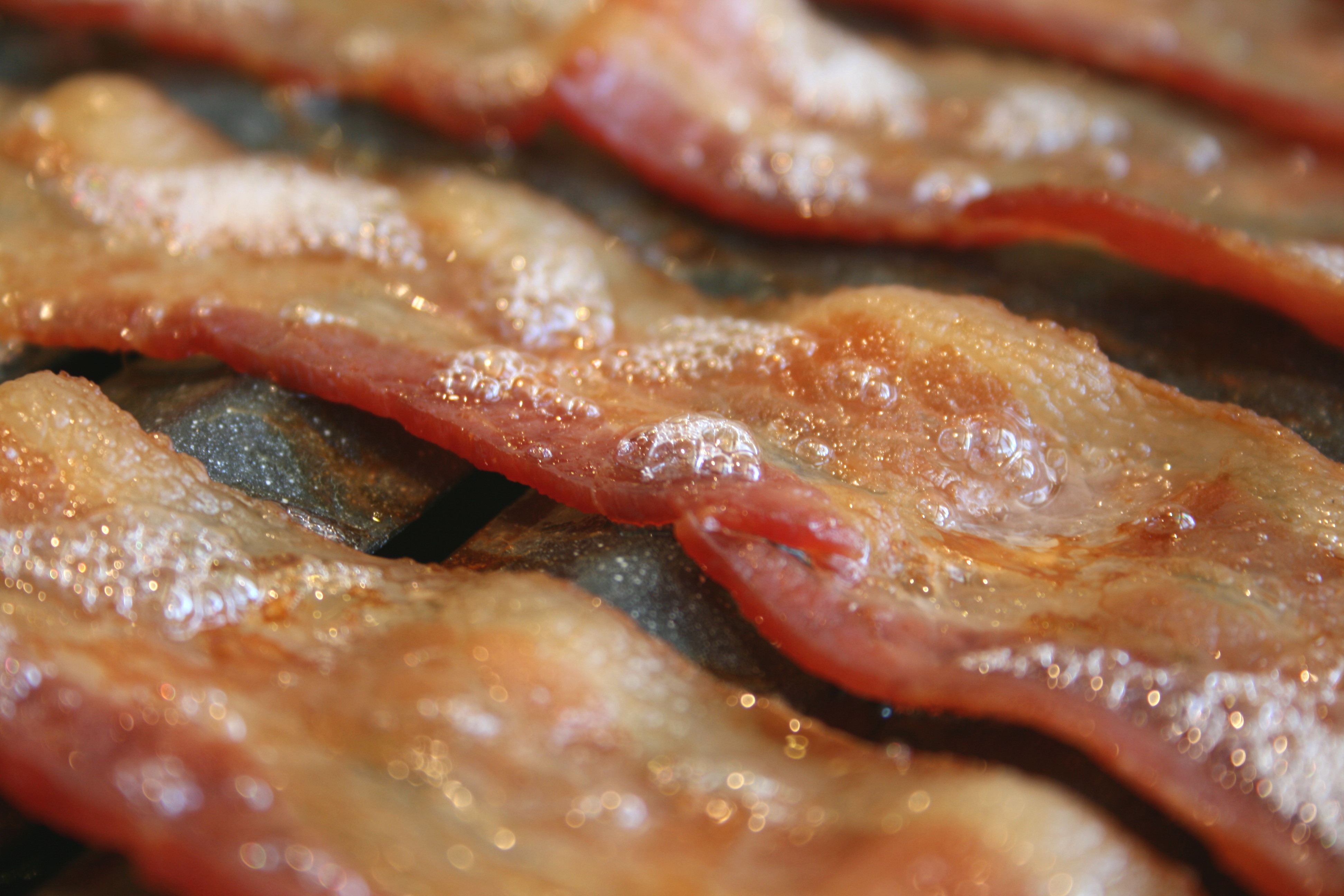Let's tell it like it is: fat makes up a huge part of bacon. Almost half of this processed meat’s fat composition is saturated, and saturated fat has long been known to raise bad cholesterol levels. The American Heart Association thus recommends limiting saturated fat intake to just 13 grams a day on a 2,000-calorie diet.
Image Source: wowmuseum.org
Also, bacon, like any other processed meat, can put you at higher risk of certain cancers, especially when it contains large amounts of nitrates.
A wise advice: Try, as much as possible, to eat real fat, the kind that is untransformed by the human hand, like organic butter, extra virgin olive oil, and nut butters; perhaps even bacon straight from the pork belly.
Image Source: shockinglydelicious.com
But for the sake of convenience, you can also have bacon straight from the grocery chiller, though in moderation. Three strips, equivalent to nearly 1 ounce of bacon, are enough to tide over a craving. Choose the ones that have less saturated fat and calories per ounce, or try leaner alternatives like turkey bacon. This helpful guide lists the fat and calorie content of some brands.
Image Source: todaysparent.com
Also, you might want to rebrand bacon as a condiment instead of your main meal. Bacon lends a strong enough flavor to salads and sautés. Try it with vegetables like asparagus, beet greens, and spinach.
I am Kevin Foote, born and raised in Colorado, and a fan of everything that's good and non-fattening. Subscribe to this blog for more options for healthy eating.

